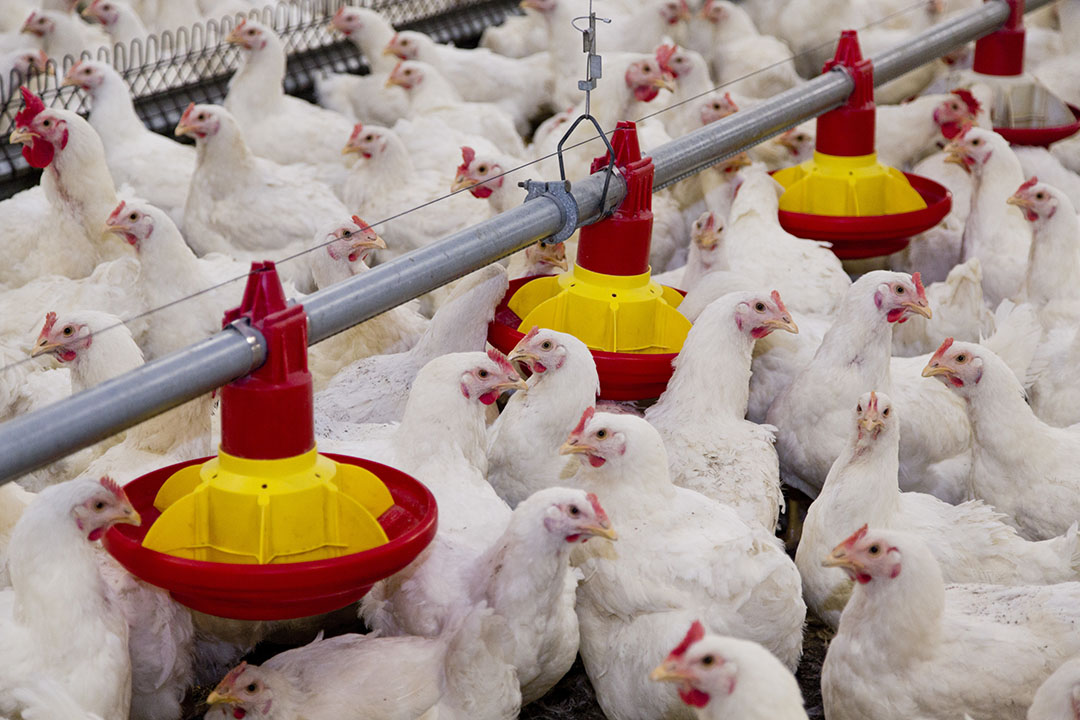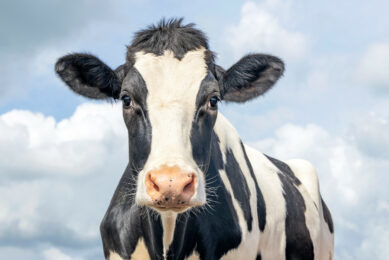Counting the benefits of nucleic acid in poultry production

Studies have shown that nucleic acid can promote the growth of livestock and poultry and improve their immune function. At the same time, it can affect the quality of poultry intestinal mucosa and the activity of intestinal mucosal protease.
Nucleic acid is an important compound in the body. It has important physiological and biochemical functions. It can participate in the synthesis of genetic material and has a significant impact on intestinal development and immune system. GroPro Poultry is also a source of nucleic acid in addition to animal organs and fish meal.
Testing the benefits of nucleic acid supplement
In a recent experiment, the effects of GroPro Poultry on broiler performance, intestinal development and slaughter performance were investigated, and the economic benefit was analysed to provide support for the application of the product.
One-day-old white-feathered broilers were randomly divided into 2 treatment groups (4 replicates in the control group and 3 replicates in GroPro Poultry group, 12,000 broilers per replicate). The control group was fed with basic diet and GroPro Poultry group was fed with 800 mg/kg GroPro Poultry for 42 days.
Effects on broiler performance
From Table 1, it can be seen that the mortality and feed-meat ratio of GroPro Poultry group were lower than those of control group, and the mortality of 2 groups showed significant difference after 21 days of age (P < 0.05); ADG and body mass of the group were higher than those of the control group, and the daily intake of food was close to that of the control group. Therefore, the addition of GroPro Poultry in the diet can improve feed conversion rate, feed quality and survival rate in later period.
Effects on intestinal development in broilers
From Table 2, it can be seen that the jejunal index and relative length of GroPro Poultry group were significantly increased compared with those of the control group (P < 0.05). From Table 3, it can be seen that villus height (V) and villus height/crypt depth (V/C) of each intestinal segment in supplemented group were significantly higher than those in the control group (P < 0.05), crypt depth (C) of duodenum and ileum was significantly lower than that in the control group (P < 0.05), and C of jejunum was similar to that in the control group.
Small intestinal villus is an important part of nutrient uptake. V, C and V/C are important indicators of small intestinal digestion and absorption. Intestinal cells migrate upward from crypts and gradually differentiate into mature intestinal cells. When they reach the top of villi, they differentiate into fully mature intestinal cells, which have complete secretion and absorption functions. Intestinal villi injury, atrophy or breakage all affect the content and activity of enzymes in brush-like margin, and then affect the digestive and absorption performance of intestinal tract. The development of small intestinal tissue structure and function can not be judged solely on the basis of V or C. V/C is the most direct index reflecting the structure and function of small intestinal tissue. The larger V/C, the lower C, the better the structure and function of intestinal tissue.
Remedial pathway
GroPro can release a lot of nucleic acid in yeast cells by enzymatic hydrolysis and autolysis during the production process. The nutritional value of yeast nucleic acid is embodied as exogenous nucleic acid, which provides raw materials for the “remedial pathway” of nucleotide synthesis and meets the needs of nucleotides under special conditions of animals.
Supplementation of exogenous nucleic acid has important nutritional and physiological effects on animal intestinal development:
- it can increase the content of protein and nucleic acid in the small intestine,
- help intestinal tissue to synthesize protein,
- increase the height of intestinal villus and the thickness of intestinal wall,
- enhance the activity of intestinal protease and amylase,
- improve intestinal absorption function, and
- accelerate the recovery of intestinal injury.
Therefore, the addition of GroPro to the diet promotes the development of small intestine, improves the intestinal morphology and structure, and enhances the digestive and absorption function of small intestine.
Development of immune organs in broilers
Table 4 shows that there is no significant difference in spleen and bursa of Fabricius between GroPro Poultry group and control group (P>0.05), but there is a tendency to increase bursa index. The supplement contains yeast cell wall polysaccharides, which can stimulate immunity and promote the development of immune organs. Bursa of Fabricius is the birthplace of B lymphocyte and plays an important role in the maturation of B lymphocyte. Therefore, the product can promote the development of bursa of Fabricius and facilitate the development and maturation of B lymphocyte.
Table 5 shows that the slaughter rate of GroPro Poultry group is higher than that of the control group, but the difference is not significant (P > 0.05), which indicates that adding the product to broiler diets can improve the slaughter performance of animals.
Economic benefit analysis
Adding GroPro Poultry to the diet can:
- promote the development of small intestine,
- improve the intestinal morphology and structure,
- enhance the digestive and absorption function of small intestine,
- improve the feed conversion rate,
- reduce the feed-meat ratio by 0.09, and
- improve the quality of entry by 60g.
- promote the development of bursa of Fabricius and facilitate the development and maturation of B lymphocyte.
- could increase the slaughter rate by 0.55%.
Adding 800 mg/kg to the diet, for each chicken, an average investment of 0.06 RMB during the whole breeding process can reduce the cost of medicine by 0.17 RMB, and increase the profit by 2 RMB when it finally comes out, see Table 6.
Authors: Xiao Xiangqian, Product Manager, Wan Longfei, Sales Manager, Chen Zhongping, Technical Manager, Angel Animal Nutrition, China






